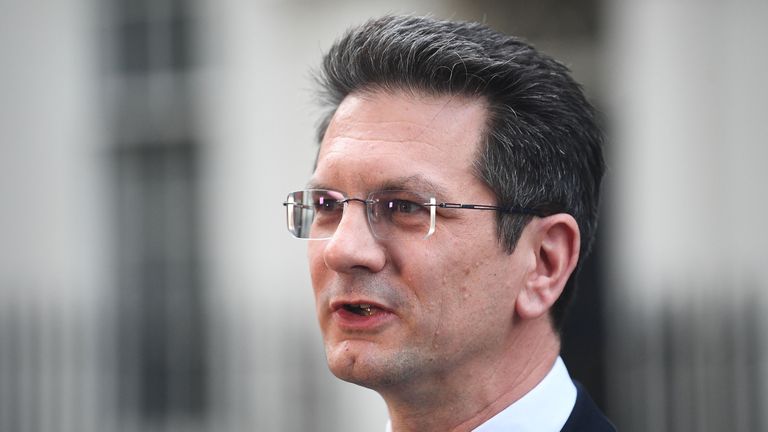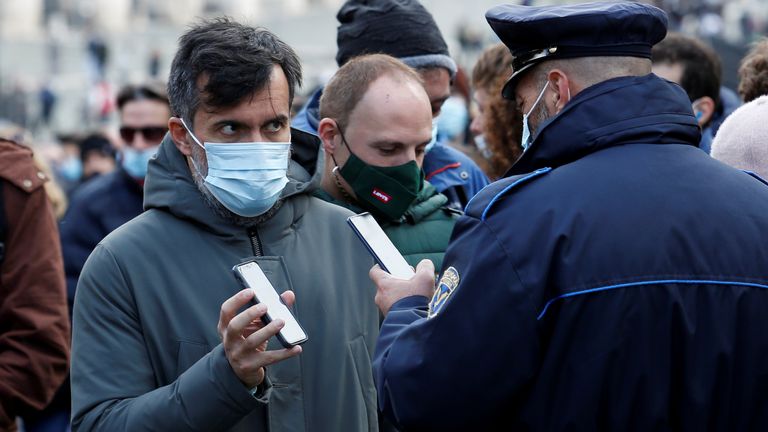Coronavirus vaccine passports have led to an increase in people getting jabbed in countries with lower coverage, a study has found.
The impact of COVID-19 certification – which requires people to have proof of complete vaccination, negative test, or a recovery certificate – was analysed in six countries where it has been introduced this year.
Researchers used modelling to estimate the number of extra doses per population that were attributable to the policy.
How the rules for the unvaccinated vary around the world
This varied from 127,823 in France to 243,151 in Israel, 64,952 in Switzerland and 66,382 in Italy.
Professor Melinda Mills, the study’s lead author at the University of Oxford, said her team observed a “significant uptake” in the 20 days before passports were introduced, which lasted up to 40 days after.
In Denmark and Germany, where there were higher average vaccination rates, there was no significant increase in inoculation after coronavirus passports were introduced.
Prof Mills said: “As mass vaccination programmes continue to play a central role in protecting public health in this pandemic, increasing vaccine uptake is crucial both to protect the individuals immunised and break chains of infection in the community.
“Our study is an important first empirical assessment of whether COVID-19 certification can form part of this strategy.”
Other factors like existing vaccination uptake, vaccine hesitancy, levels of trust in authorities, and trajectory of the pandemic were crucial to the impact of the policy, she said.
‘A useful way to encourage complacent groups’
Dr Tobias Ruttenauer, co-author of the study, said: “It may be that COVID-19 certification is a useful way to encourage vaccine complacent groups, like young people and men, to get vaccinated.
“However, COVID-19 certification alone is not a silver bullet for improving vaccine uptake and must be used alongside other policies.”
Where vaccine hesitancy is due to a lack of trust in authorities, which is common among some people from ethnically diverse communities, targeted vaccine drives and community dialogue might be more effective solutions, he said.
Flavio Toxvaerd, a lecturer at the faculty of economics, University of Cambridge, said the study “confirms that people respond to incentives, in this case incentives to get vaccinated”.
“For those who are hesitant, different incentives can make the difference and requiring vaccine certification makes life for the unvaccinated more cumbersome,” he said.


